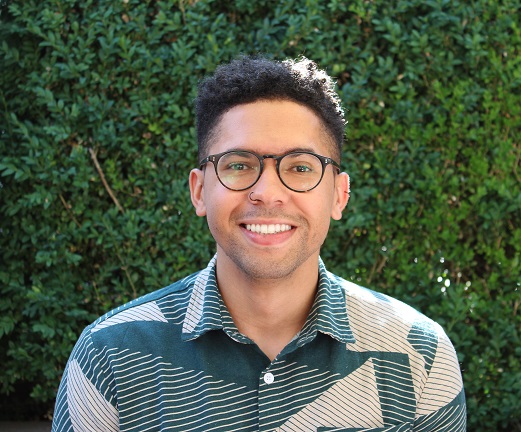Research in Auditory Mechanisms of Fish is Funded by the Howard Hughes Medical Institute
Loranzie Rogers and Joe Sisneros (Animal Behavior Area) received funding from the Howard Hughes Medical Institute in support of their research on the auditory mechanisms of vocal fishes. Learn more about Loranzie below!
The Howard Hughes Medical Institute (HHMI) Gilliam Fellowships for Advance Study is a funded program where pairs of faculty advisors and their graduate students are "selected based on HHMI values and consideration of essential components of the environment." The award recognizes the commitment that institutions and advisors have in mentoring their student and supporting the student to positions in science and leadership.
Let's start with the basics, where are you from and where did you complete undergrad/masters?
I am from Hutchinson, MN, which is a town of about 14,500 people. I completed my undergraduate degree in biology in 2017 and my master's in integrative biosciences in 2019 at the University of Minnesota Duluth.
How did you wind up at UW/why did you apply here?
I applied to UW to work with my advisor, Dr. Joseph Sisneros, on the auditory mechanisms of vocal fishes.
What is your research interest and how did you get into it? What inspires/motivates you?
Since I was an undergraduate, I have been interested in how sensory systems of aquatic vertebrates detect, encode, and respond to complex sensory stimuli in their environment. These interests have allowed me to study the visual, mechanosensory, and auditory systems of fishes.
How did you learn about your funding opportunity? Tell us about the application/waiting process.
I learned about the Howard Hughes Medical Institute (HHMI) Gilliam Fellowship through a colleague’s lab website. One of their students was a recipient of the award in 2020. Since their lab works with neotropical frogs to understand how changes in brain function mediate behavioral evolution, I was encouraged to also apply for the fellowship.
In order to apply for the HHMI Gilliam Fellowship, the advisor-student pair must first be nominated by the University. Once nominated, the advisor-student pair submit a brief abstract to the HHMI, which is reviewed for fit within the funding categories of the fellowship. Those projects that fit within the funding guidelines are invited to submit full proposals for consideration. The full proposal consists of a research plan with reference list, career statement, list of publications and presentations, and a scientific leadership statement, which are all due approximately 1.5 months after the advisor-student pair have been asked to submit full proposals. Once the application has been submitted, award notifications are sent out approximately six months later.
How did you feel when you learned that your application was accepted and that you will receive funding?
I was super stoked! Being a recipient of any fellowship is both validating and reassuring that experts in your field view your research as making a significant contribution to the field. In addition, while the fellowship allows me to focus on my research, it also offers great conference, workshop, and networking opportunities.
What is the name of your project and the funding source?
My project title is "Neural mechanisms of directional hearing and sound source localization in plainfin midshipman (Porichthys notatus)" and the funding for this project is provided by the Howard Hughes Medical Institute Gilliam Fellowship.
Do you have any advice/tips/suggestions for others who may apply to this opportunity? About graduate study in general?
If you are interested in applying for the award, I would recommend looking at the list of previous award recipients and reaching out to them for advice about the application process. There have been several previous award recipients at UW and many of them provided me with helpful advice/tips. I would also recommend that you work closely with your advisor to formulate a feasible research plan that answers a longstanding question or questions in your field.
What do you like doing in your spare time?
I like to run.
What do you plan to do once you complete your Ph.D.?
Following my Ph.D., I would like to continue in academia and go on to conduct research as a postdoc and professor related to how the sensory systems of aquatic vertebrates are adapted for their complex environmental conditions and how behaviorally relevant environmental signals are encoded within the central nervous system via behavioral and electrophysiology techniques. Additionally, I hope to leverage the privileged position I have had throughout my scientific career to promote science to those not yet given the opportunity.
Supplemental reading:
- More information on the Howard Hughes Medical Institute Gilliam Fellowships for Advanced Study
- Grants and Funding Information Service (GFIS) through the UW Libraries
